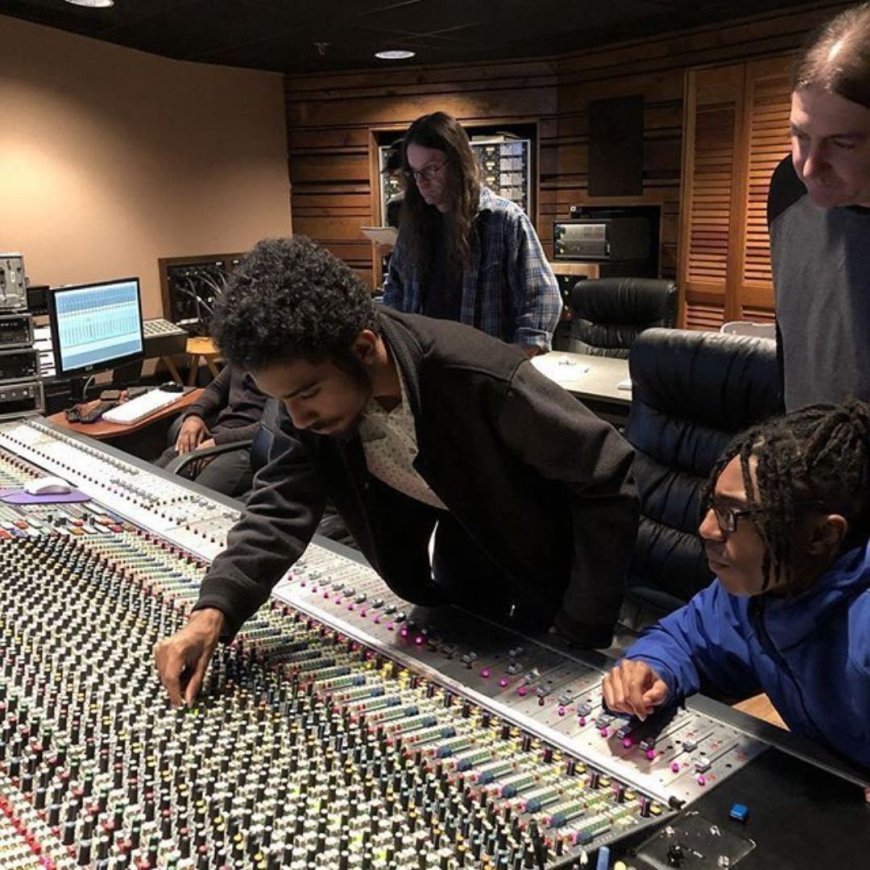Sound Engineering Careers: Fields, Skills, and Jobs
Discover sound engineering careers, key skills, and job roles. Explore opportunities and learn how to start with the right training and practical experience.

Sound engineering is an exciting and creative field that brings life to music, movies, games, and live events. From recording studios to film sets, sound engineers work behind the scenes to ensure that sound is clear, balanced, and powerful. If you are someone who loves music, technology, and creativity, a career in sound engineering could be the perfect fit. Many aspiring professionals begin their journey through practical learning experiences or by enrolling in sound engineering courses in Kerala, where training often blends theory with real-world studio practice.
In this article, lets explore the major fields within sound engineering, the key skills you need, and the various job opportunities available. Whether you're a student or someone looking to switch careers, this guide is designed to help you understand the basics in a simple and easy way.
What is Sound Engineering?
Sound engineering, also called audio engineering, is the process of working with sound and audio technologies to record, mix, edit, and reproduce sound. Sound engineers use microphones, mixers, computers, and editing software to create high-quality sound for different types of media. They play a vital role in shaping how we hear music, dialogue, and sound effects.
Main Fields in Sound Engineering
Sound engineering is not limited to just recording music. It branches into various fields, each with its own style and work environment. Here are some of the popular fields:
1. Studio Recording
Studio engineers work in recording studios to capture the sound of singers, bands, or solo artists. They adjust microphones, manage recording levels, and use software to produce clean, professional-quality recordings.
2. Live Sound Engineering
Live sound engineers manage audio during concerts, events, theater performances, or public speeches. They set up and operate sound systems, manage feedback, and ensure the audience hears everything clearly.
3. Film and Television Sound
Audio engineers in this field handle dialogue, background sound, and sound effects for films and TV shows. Their job includes recording on set and post-production editing in studios.
4. Broadcast Engineering
These engineers work in radio or TV stations to ensure that sound is transmitted smoothly. They monitor live broadcasts, adjust audio levels, and troubleshoot sound issues.
5. Game Audio Design
Game sound engineers create sound effects, voice-overs, and background music for video games. This involves a mix of creativity and technical knowledge to make the gaming experience more immersive.
6. Sound Design for Theatres
Sound engineers for stage productions design soundscapes that support storytelling. They create effects like footsteps, wind, or crowd noises that match the action on stage.
7. Podcast and Audiobook Production
In recent years, podcasts and audiobooks have become popular. Engineers in this space handle voice recording, noise reduction, editing, and final mixing.
Key Skills for a Successful Sound Engineer
Becoming a sound engineer requires more than just a love for music or sound. There are important skills that can help you succeed in this industry:
1. Listening Skills
This is the most basic yet most important skill. A good sound engineer can notice even the smallest problems in a recording and make the necessary adjustments.
2. Technical Knowledge
You must know how to use audio software, mixers, microphones, amplifiers, and other tools. Learning how each piece of equipment works is essential.
3. Creativity
Sound engineering is a creative job. Whether youre designing a unique sound effect or mixing tracks, youll need to think creatively to get the best result.
4. Problem-Solving
During live events or recordings, things can go wrong a mic may stop working, or sound may distort. You should be able to fix problems quickly and calmly.
5. Teamwork
You will often work with musicians, producers, directors, or event managers. Good communication and teamwork help the project run smoothly.
6. Time Management
Recording sessions and live events often follow tight schedules. A sound engineer must be organized and complete tasks on time.
Common Job Roles in Sound Engineering
Once you gain skills and knowledge, you can step into various job roles. Lets take a look at some popular career options:
1. Recording Engineer
These professionals handle the recording of audio in studios. They work closely with artists and producers to capture the perfect take.
2. Mixing Engineer
Mixing engineers combine multiple audio tracks into a final version. They adjust volume, equalize sound, and add effects to create a polished product.
3. Mastering Engineer
The final step in the audio process, mastering engineers prepare tracks for distribution by making sure they sound good on all devices and platforms.
4. Live Sound Technician
These technicians work behind the scenes during concerts, public events, or theater shows to manage sound levels and equipment.
5. Broadcast Engineer
They work in TV and radio stations, ensuring that audio signals are transmitted correctly to the audience without glitches.
6. Sound Designer
Sound designers create unique sound effects for films, games, or theater. They may use recordings or software-generated sounds to match the scene.
7. Field Recordist
These specialists capture sounds from natural or outdoor environments, which are later used in documentaries, films, or sound libraries.
The Work Environment
Sound engineers work in a variety of settings recording studios, concert halls, film sets, radio stations, and even home-based studios. The job might require odd hours, especially if you're working on live events or with clients in different time zones.
Some engineers choose to work full-time with a company, while others go freelance and take up projects as they come. Flexibility and adaptability are important in both cases.
Building a Career in Sound Engineering
To begin a career in sound engineering, many people take up formal training or specialized learning programs. For example, some choose sound engineering courses in Bangalore, where they can gain hands-on experience with professional equipment and studio environments.
Creating demo reels, networking with industry professionals, and staying updated with the latest technology also gives you a strong advantage in the competitive job market.
Final Thoughts
Sound engineering is a mix of art and science. It gives you the chance to work in exciting environments and be part of creative projects. Whether its helping a singer produce a hit song or managing sound at a live event, the opportunities are vast and fulfilling.
If you are passionate about sound, patient in learning, and ready to practice your skills, sound engineering can be a highly rewarding career path. With dedication and creativity, you can turn your interest in audio into a full-time profession that brings joy to listeners across the world.









































